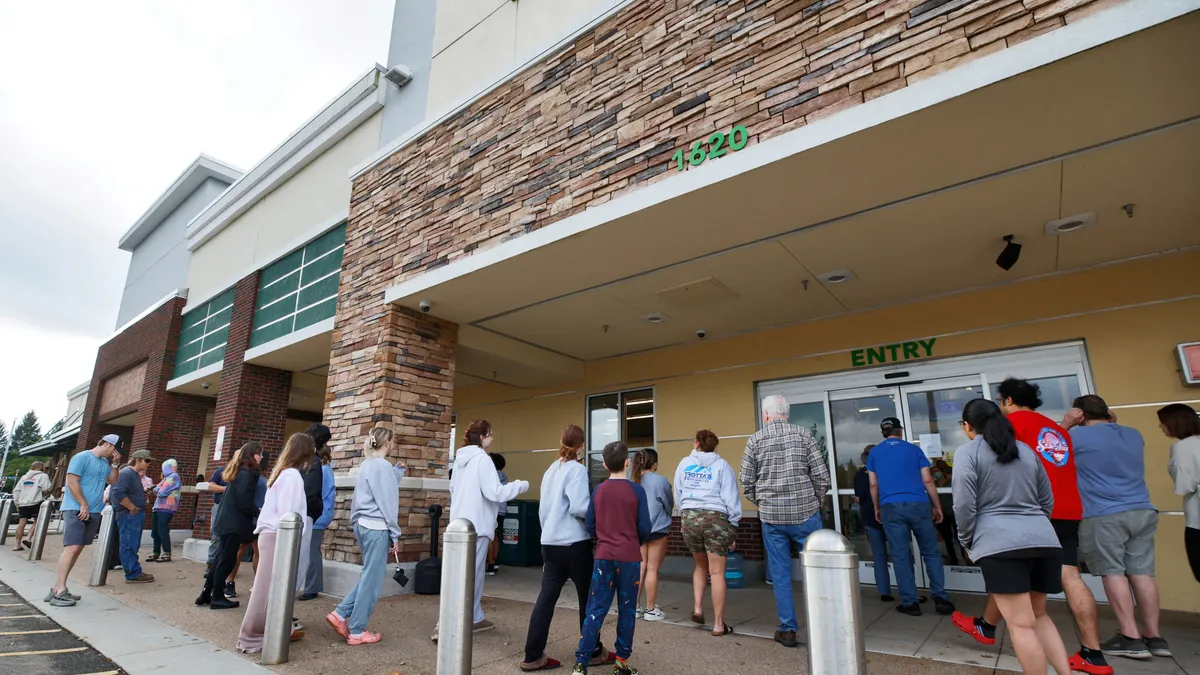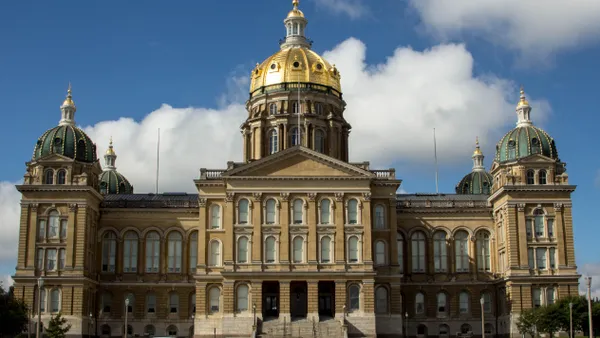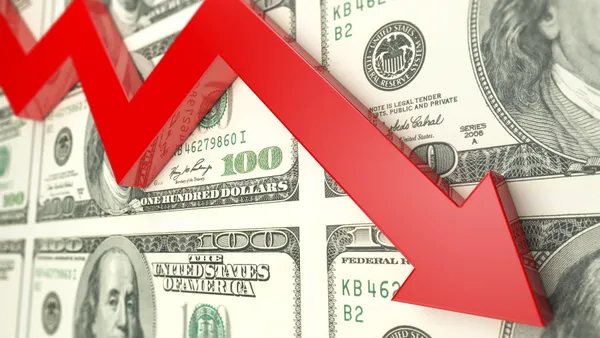After Hurricane Helene devastated much of the southeastern U.S., survivors of the wreckage wrought by the storm are grappling with another issue: How to pay for goods and services.
Across much of the region, particularly in the hardest hit areas, credit card networks have been disabled in tandem with power and internet outages. Merchants who managed to open their doors were sometimes demanding that customers use cash only because of an inability to process credit or debit card transactions.
The grocery store chain, Ingles Markets, which has locations in North Carolina and Tennessee, said damage to its card processing had affected its stores throughout the region, leading it to accept only cash and checks, but not credit and debit cards, according to the Knoxville News Sentinel.
Consumers forced to turn to cash are likely hard-pressed to come up with it, given the decline in use of hard currency in the U.S. these days. They increasingly rely on debit and credit cards for payments, with about two-thirds of transactions made with cards.
Specifically, a small survey that the Federal Reserve does regularly showed consumers used credit cards for 32% of payments, debit cards for 30% and cash for 16%, according to the latest report in June. (Consumers also used automated clearing house payments 13% of the time, checks 3% of the time and other methods 6%.)
The two big U.S. card networks, Visa and Mastercard, didn’t immediately have any comment on the situation.
That constriction on card use in areas most affected by Helene has led a larger number of people than usual to turn to bank ATMs for cash disbursements. In turn, that has resulted in longer lines than usual at ATMs, and some ATMs running out of cash.
Given the region’s turmoil, such issues have come to the attention of the Federal Reserve. During an economic conference this week in Tennessee, which was also impacted by the storm, Chairman Jerome Powell noted that the central bank is prepared to offer assistance, specifically in making cash available.
“We have the ability, through the Reserve Banks, to make sure that banks have available cash, so that if power is out for a significant amount of time, there’s enough cash to do transactions,” he said, according to a Monday report from the ABA Banking Journal.
The central bank also seemed to encourage banks to consider providing additional leeway for customers affected by the ravages of the storm, suggesting they might waive ATM fees, card late fees and overdraft fees; ease restrictions on cashing checks; and increase ATM withdrawal limits.
In addition, the Fed provided information on its website as to how banks and businesses might handle damaged currency, given the flooding and other contamination to areas that has followed in the wake of the storm.













